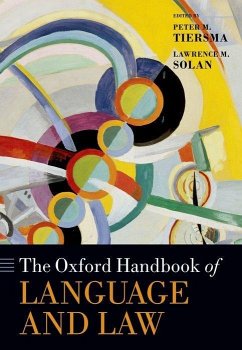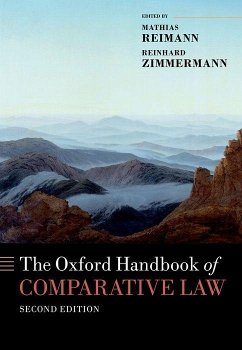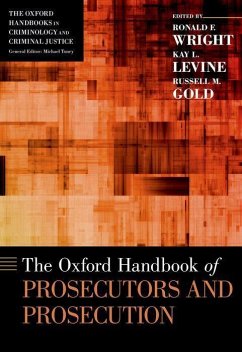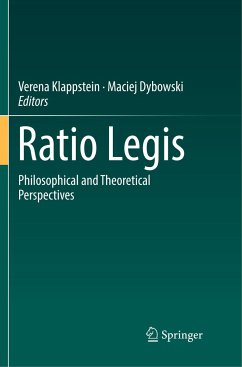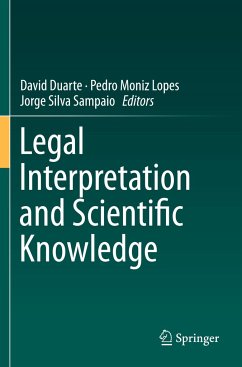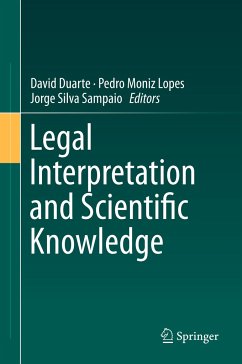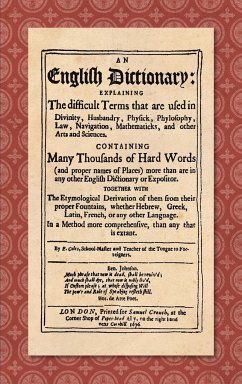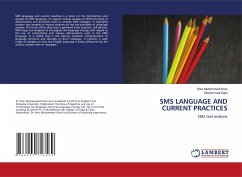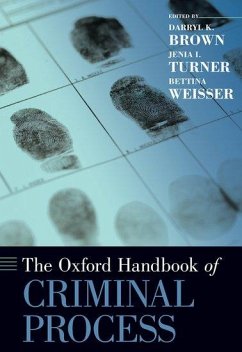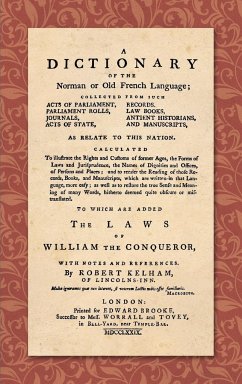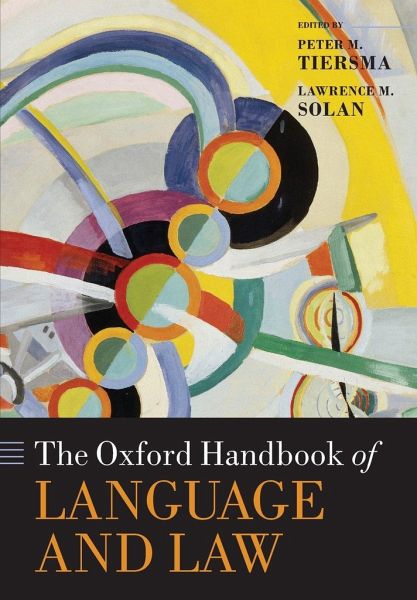
Oxford Handbook of Language and Law
Versandkostenfrei!
Versandfertig in 1-2 Wochen
60,99 €
inkl. MwSt.

PAYBACK Punkte
30 °P sammeln!
This book provides a state-of-the-art account of past and current research in the interface between linguistics and law. It outlines the range of legal areas in which linguistics plays an increasing role and describes the tools and approaches used by linguists and lawyers in this vibrant new field. Through a combination of overview chapters, case studies, and theoretical descriptions, the volume addresses areas such as the history and structure of legal language, itsmeaning and interpretation, multilingualism and language rights, courtroom discourse, forensic identification, intellectual prope...
This book provides a state-of-the-art account of past and current research in the interface between linguistics and law. It outlines the range of legal areas in which linguistics plays an increasing role and describes the tools and approaches used by linguists and lawyers in this vibrant new field. Through a combination of overview chapters, case studies, and theoretical descriptions, the volume addresses areas such as the history and structure of legal language, its
meaning and interpretation, multilingualism and language rights, courtroom discourse, forensic identification, intellectual property and linguistics, and legal translation and interpretation.
Encyclopaedic in scope, the handbook includes chapters written by experts from every contentint who are familiar with linguistic issues that arise in diverse legal systems, including both civil and common law jurisdictions, mixed systems like that of China, and the emerging law of the European Union.
meaning and interpretation, multilingualism and language rights, courtroom discourse, forensic identification, intellectual property and linguistics, and legal translation and interpretation.
Encyclopaedic in scope, the handbook includes chapters written by experts from every contentint who are familiar with linguistic issues that arise in diverse legal systems, including both civil and common law jurisdictions, mixed systems like that of China, and the emerging law of the European Union.



